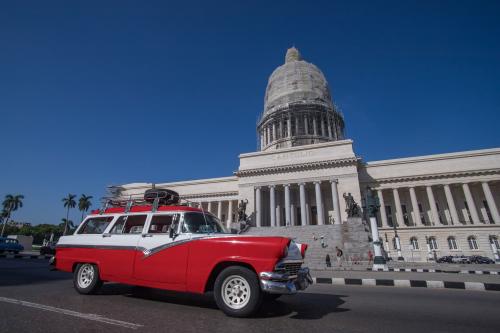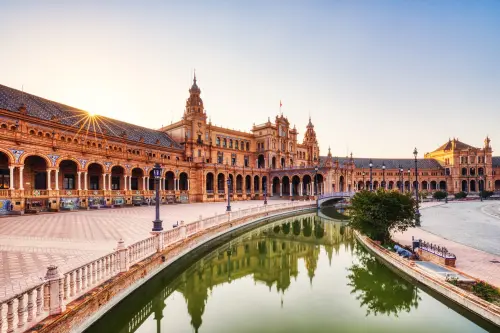Lagos, the second most populated city in Africa, is an uncharacteristic ghost town today. The government’s decision to eliminate Nigeria’s costly but highly popular fuel subsidy program has sparked mass protests and unrest across the country as fuel costs have increased officially from $0.40/liter to $0.86/liter. On Monday morning, labor unions began a nationwide general strike that has brought Nigeria to a standstill.
Despite the unrest, the decision to abolish Nigeria’s fuel subsidy is the right one. In 2011 alone, Nigeria’s fuel subsidy cost the country an estimated $8 billion and the price tag for 2012 was expected to be even greater. This does not even take into account the country’s losses due to market distortions as a result of the subsidy. While politically costly in the short run, if Nigeria’s government can implement transparent and well-structured reforms, the funds from the fuel subsidy program could be put to far greater use.
With an estimated 37.2 billion barrels of proven oil reserves, Nigeria is one of the world’s largest oil producers. However, the country’s mineral riches have not resulted in a significant improvement in the quality of life for the majority of Nigeria’s citizens, 54 percent of whom live below the national poverty line. In 2010, Nigeria earned $59 billion from oil exports. Therefore, Nigeria does not lack the resources to reach its development goals, rather its resources have been utilized inefficiently.
In the wake of the global financial crisis and increasing sovereign debt risk, financing for development is drying up and developing countries must now look inward to finance their growth and development needs. Crisis times require bold reforms and President Jonathan of Nigeria has the ability to take on one of the most difficult problems in his country. But in order to succeed, he will also have to take on another challenge – transparency in the use of the $8 billion fuel subsidy funds. The government must utilize these resources more efficiently to create social welfare and infrastructure improvement programs that will not only improve the quality of life for Nigeria’s poorest but also put the country on track to meet its development goals.
Cost of the Fuel Subsidy
The cost of the fuel subsidy has continued to grow exponentially. This is partly due to the rising cost of fuel—which meant that the government had to spend even more to keep domestic prices low— and also due to Nigeria’s increasing population— which resulted in increased fuel consumption; together these pressures made the cost of the fuel subsidy unsustainable. The price of crude oil increased from 30.4 dollars per barrel in 2000 to 94.9 in 2010 over the same period Nigeria’s population increased from about 123 million to 158 million. By 2011, the fuel subsidy accounted for 30 percent of the Nigerian government’s expenditure and it was about 4 percent of GDP and 118 percent of the capital budget.
Nigeria’s fuel subsidy continues to crowd out other development spending. By comparison,, Nigeria’s total allocation for education is about $2.2 billion and it is not much higher for health care. Infant mortality in Nigeria remains unacceptably high at 90.4 per 1,000 live births. In 2004, it was estimated that only 15 percent of the country’s roads were paved. The $8 billion from the fuel subsidy could help to address some of these issues.
In addition, keeping the domestic price of oil artificially low with the fuel subsidy has discouraged additional investment in Nigeria’s oil sector. This is especially problematic given that the oil sector is the lifeblood of the Nigerian economy. Since 2000, Nigeria has issued at least 20 refinery licenses to private companies. However, not one refinery has been built because investors could not recoup their investment under the artificially low price structure.
Who Benefits the Most?
In debating the merits of Nigeria’s fuel subsidy it is important to understand who benefits the most from the program. Contrary to popular belief, it is the rich not the poor who disproportionally benefit from Nigeria’s fuel subsidy. With the government subsidizing the market to keep domestic fuel prices artificially low, it is those who consume the most that have a greater benefit from the subsidy. Nigeria’s poor rely primarily on public transportation as such their per capita fuel consumption is significantly less than the country’s rich, who generally use private vehicles. Neighboring countries also benefit significantly from Nigeria’s fuel subsidy through smuggling.
Sustaining Reforms Amidst Unrest
One legitimate criticism against the Nigerian government is that it has done a poor job in planning for the subsidy removal and in communicating the huge costs of the fuel subsidy and the benefits of its removal to the population. In a country where there is already a lack of trust between the people and government, communications is critical. Otherwise the protesters will continue to believe that this is just another ploy by Nigeria’s elite to further capture the country’s resources. The real challenge the government faces is winning the trust of the people. Working Nigerians are hurting and their livelihoods are in danger with the doubling of petrol prices. They want to know that the government has a credible plan and the protests represent a call for the government to quickly implement post-subsidy programs. Some form of social protection must be launched immediately to protect the most vulnerable. This could include measures to reduce the cost of public transportation in the near term.
The Nigerian government must implement a transparent system for redirecting and monitoring the use of funds from the fuel subsidy program so that its citizens can review and scrutinize the expenditure. The government has announced its intention to redirect the funds from the subsidy into infrastructure, support for small businesses and safety net programs. This is a step in the right direction, but the success of these programs rests on having proper oversight and participation of civil society. The government should assemble a committee of key civil society organizations to oversee the investment of these funds. Unlike the fuel subsidy itself, these programs should be targeted toward helping the poor including programs to reduce maternal and infant mortality and improve road quality and access. Most importantly, the programs must be tied to Nigeria’s overall development goals. The government and the proposed civil society oversight committee must prioritize sustainable investments that will have a long-term development impact. Pork barrel type investments spread across the country to appease the people will not serve President Jonathan and his government well in the long run.
It is too early to tell whether the Nigerian government will succeed in these efforts but after 20 years of dodging the issue and trillions of Naira spent, the removal of the fuel subsidy should be supported. If implemented correctly, the subsidy funds could lead to major development gains. Moreover, the removal of the fuel subsidy – if successfully implemented – creates the space for Nigeria to finally develop refinery capacity and consequently increase its potential revenue from the oil sector and create jobs. Civil society organizations should take this opportunity to fully engage in the debate on how best to redirect the funding from the subsidy program. In turn, the Nigerian government must communicate its plans and actions transparently to the people.
The Brookings Institution is committed to quality, independence, and impact.
We are supported by a diverse array of funders. In line with our values and policies, each Brookings publication represents the sole views of its author(s).



Commentary
Op-edRemoval of Fuel Subsidies in Nigeria: An Economic Necessity and a Political Dilemma
January 10, 2012